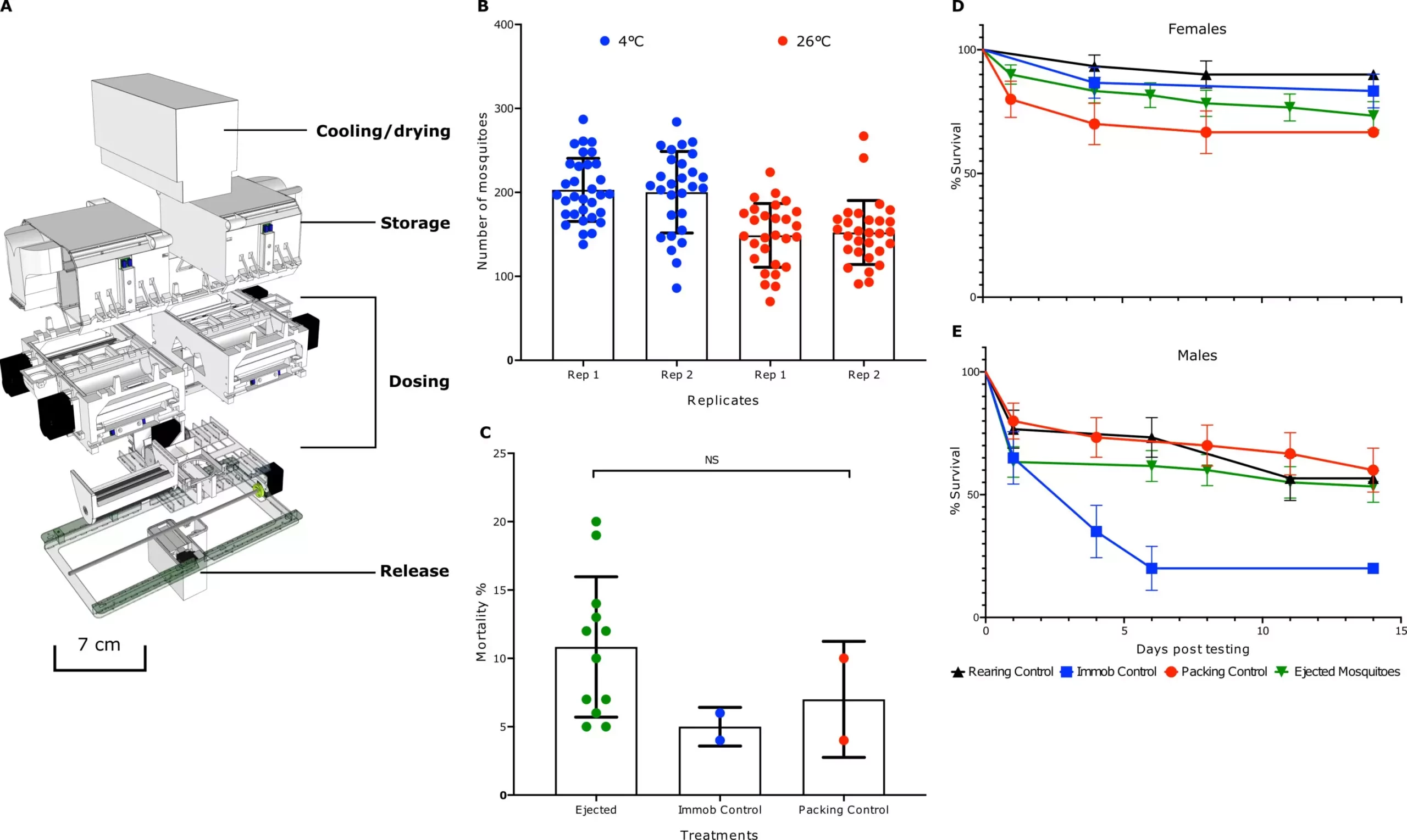Mosquitoes represent one of the most formidable foes in global public health, transmitting debilitating diseases such as dengue fever, Zika virus, and chikungunya. The prevalence and resilience of these pests call for innovative solutions that transcend traditional methods of pest control. For years, the standard practice has involved breeding and manually releasing infected mosquitoes to tackle their populations. However, this technique is fraught with inefficiencies and safety concerns, limiting its effectiveness in combating the widespread threat that mosquitoes pose. The urgent need for a more efficient resolution underlines a broader dialogue within public health: how can we more effectively manage disease vectors while ensuring minimal disruption to ecosystems?
A Breakthrough in Mosquito Population Control
An international collaboration led by the World Mosquito Program and WeRobotics is not just addressing this need but redefining the entire approach to mosquito management. Their groundbreaking research, recently published in *Science Robotics*, unveils an automated system utilizing drones to release large numbers of mosquitoes infected with a bacteria that sterilizes or kills their disease-carrying counterparts. By leveraging technology, this innovative strategy promises to streamline what has historically been a cumbersome and labor-intensive process.
The heart of this project lies in the design of a specially engineered container capable of holding thousands of mosquitoes, which can be released with precision across specified areas. This is a stark contrast to previous manual release methods, where uneven distribution often rendered efforts less effective. Automation introduces a level of control and efficiency previously unattainable in this field.
The Role of Drones in Public Health
Drones are no longer merely toys for recreation or tools for surveillance; they are emerging as pivotal instruments in modern public health initiatives. The adaptability and scalability that drones offer can vastly enhance the logistics of mosquito release. With the innovative container that holds multiple compartments, researchers can deploy infected mosquitoes without the logistical nightmare of manual handling. Each packed drone is capable of deploying around 150 mosquitoes at predetermined intervals, ensuring a thorough and systematic spread over extensive areas, as demonstrated in field trials conducted in Fiji.
The implications of such advancements are profound. Not only does this method provide a safer alternative—reducing the risk to human handlers—but it also presents a more humane approach to pest management. By enabling the controlled release of mosquitoes, we diminish the variability associated with manual dispersals that may inadvertently harm non-target species.
Innovating for Efficacy and Sustainability
It’s essential to recognize that the revolution of mosquito control does not hinge solely on technology; it also involves an ecological understanding of the interactions between the introduced bacteria and local ecosystems. The researchers’ commitment to maintaining the ecological balance during trials showcases their awareness that the success of such interventions requires due consideration of the environment.
Automated release devices, with their climate-control features and sedative mechanisms, are designed to ensure that mosquitoes remain unharmed until it’s time for their release. This kind of forward-thinking not only optimizes the operational logistics but also speaks to an ethical commitment to minimize collateral damage to the ecosystem.
The Future of Vector Control
What lies ahead in the realm of mosquito management? This research paves the way for further studies that may include deploying different strains of bacteria, refining release mechanisms, and perhaps even combining methods to enhance the efficacy of mosquito population control. The intersection of technology, health, and environmental stewardship has finally found a compelling advocate in the format of drone-assisted mosquito control.
As challenges loom on the horizon, the need for effective mosquito management has never been more pressing. Innovations such as these signal a promising shift in how we approach public health in relation to vector-borne diseases, laying the groundwork for a future where outbreaks are managed proactively rather than reactively. The capacity to combine scientific ingenuity with automation might just be the cornerstone for a healthier, safer world in the face of one of nature’s persistently troublesome adversaries.


Leave a Reply